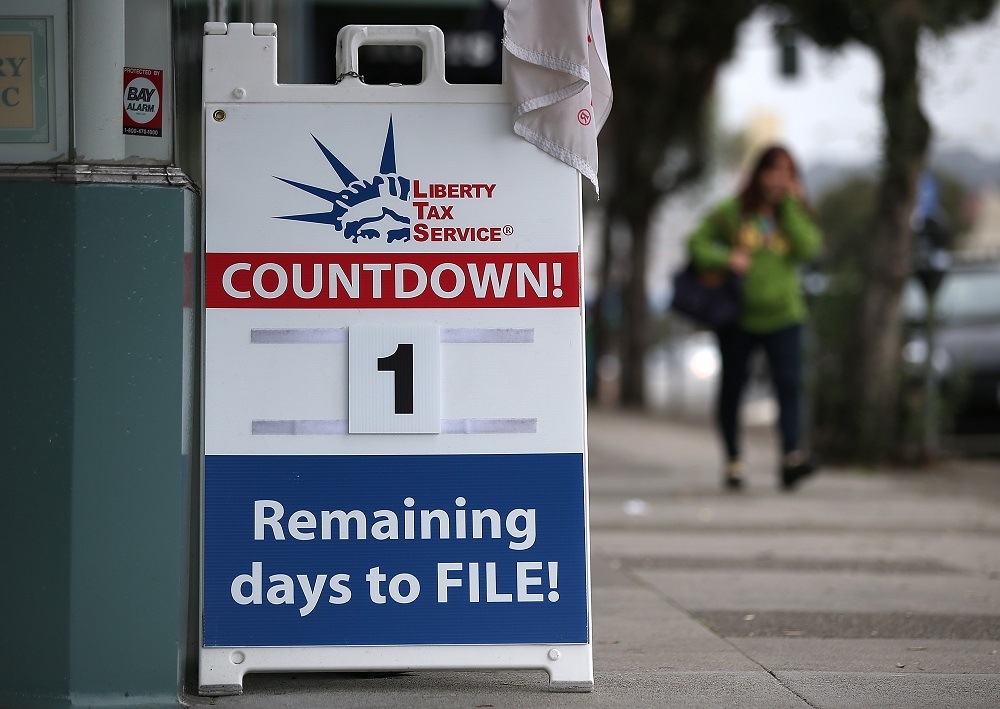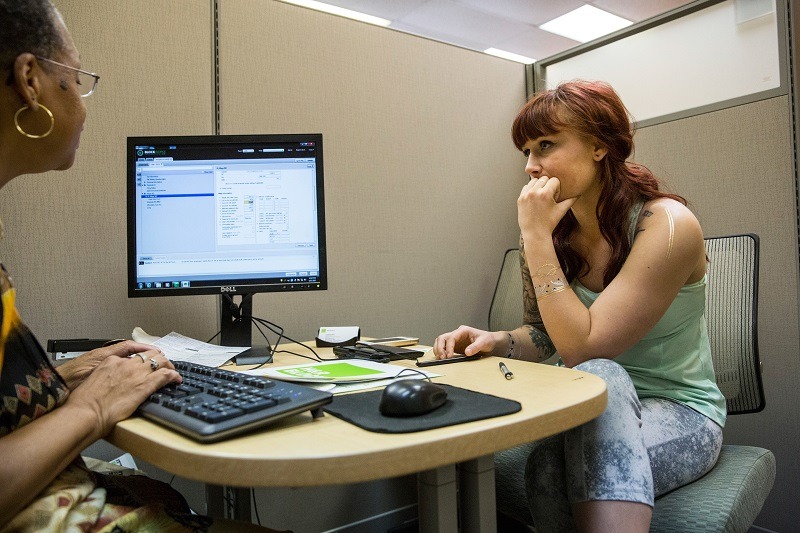
Andy Dufresne in Shawshank Redemption helping a prison guard with his taxes | Castle Rock Entertainment
Here’s the thing: It doesn’t have to be that way year after year. Yes, you still need to pay the taxes you owe. As John Oliver sagely points out, it’s one of the few reasons our country can operate at all. However, you might find that it’s just as easy and cheaper to file your own taxes.
At that suggestion, the dread might creep up even more. But if your tax situation hasn’t changed dramatically from year to year, and your financial habits are pretty straightforward, it might be worth it to give it a shot. The worst that could happen is you try to save yourself some money, only to get confused and give your accountant a call in a few weeks from now. No harm, no foul. Plus, you might be surprised by some added benefits of filing the taxes yourself. Here’s why.
1. You get to keep your entire tax refund

A mock tax refund check | Mark Wilson/Getty Images
2. Many filing tools are cheap or free

Turbo Tax software for sale | Tim Boyle/Getty Images
On top of that, the software you can buy to use on your own gets updated every year with new tax laws, and they’re generally pretty affordable. Most tax experts suggest using software from TurboTax or H&R Block if you’re going to file on your own. TurboTax’s site will help you determine which of their packages is most likely to help you — the Deluxe edition is the most popular, and retails for $34.99. Other options to cover numerous revenue streams or your own business are more complex, but still only cost $90 or less. H&R Block offers similar software setups for similar prices, ranging from $30 to $90.
Finally, solid tips abound for people who are determined to file their own taxes. The self-filing software often comes with live help from CPAs (TurboTax and H&R Block both offer that resource), and it’s easy to find a list of best practices, like this one from TIME.
3. You can file whenever you want

A tax advertisement | Justin Sullivan/Getty Images
You might use a little more brain power submitting your own return, but the reality is that you’ll be using the same forms and information that you would otherwise collect in a folder for the staff at the H&R Block pop-up across town. Why not sit down and file yourself, when your medical expenses and charitable donations are fresh in your mind?
4. You’ll grow in financial awareness

Couple figuring out their financies | iStock.com
“You see your assets, expenditures, and income at a detailed level for the entire year,” writes Mike Jelinek for The Simple Dollar. “Doing your taxes on your own also helps you understand what you can write off. You learn what receipts to keep and what to discard. Products like H&R Block ask you detailed questions as you work through your taxes. It makes you stop and think about what has happened to you in the past year financially, and even more so in your overall life.”
When to hire a professional

A woman meets with a tax preparer | Andrew Burton/Getty Images
That’s not to say that you always need to throw in the towel in light of more complicated taxes — Jelinek at The Simple Dollar makes the case that you can file your own even if you move states and have your own business. However, it was enough for us to have someone else be in charge for a few years.
Being self-employed, owning rental properties, having complicated stock holdings, or even adding children to the mix can be reasons you might want a trained professional taking a look at your return for you. If you earn more than $200,000 a year, it might also be a good idea. Business Insider reports that your likelihood of being audited goes up after this threshold. Not only will a tax professional set your mind at ease about everything being done correctly, but most also offer audit assistance should the IRS come knocking.
Perhaps even more important is when doing your own taxes is too much of a hassle to even think about. If you’re stressed just downloading TurboTax, let alone pulling out your W-2 by yourself, it might be worth it to get some reinforcements.
The key is to remember two things. One: Not everyone sitting at a pop-up desk is trained with taxes. If you have a truly complicated situation, go the extra mile to hire a tax lawyer, CPA, or enrolled IRS agent. An online Tax Preparer Registry can tell you if the person you choose is actually licensed to look at your financials. And two: You can still be an informed taxpayer. Look into the deductions you’re eligible for ahead of time, have an estimation in your mind, and look over your return in full to learn as much as you can about your own financial picture. That way your can ask the tax preparer informed questions, and maybe even catch a thing or two yourself. You care the most about your own taxes, so know as much as you possibly can.
No comments:
Post a Comment